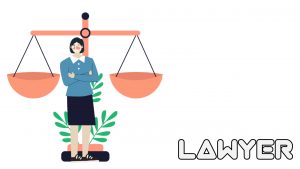How to Sue a Bank in Nigeria: Incessant cases of network issues, exorbitant bank charges, employees negligence, reversal of transactions, theft, and unauthorized debits has been the order of the day in the Nigerian banking sector, as banking institutions had been plagued with these shortcomings towards satisfying the needs of its customers. Most of the times, customers are unable to send money urgently due to their Bank’s poor network, sometimes customers are debited without their transaction being successful, other times customers are subjected to unnecessary Bank charges for withdrawals, card maintenance, FG stamp, and other imaginary charges.

In grave circumstances, Customers are victims of internal bank fraud, unauthorized debits, or beneficiaries of financial loss due to either of these banking issues. In any of these instances, seeking redress against your Bank to recover your money is imperative, but the question most people will ask is ‘How can I seek redress?’
I can understand that seeking redress is not an easy process, but in this Article I shall breakdown the process of seeking redress against your bank in order to recover your money or rectify any sort of Banking issues you may have encountered.
Recommended: How To Become a Successful Entrepreneur
How to seek redress against Banks in Nigeria
It is instructive to note that if you have experienced any banking issue with any banking institution in Nigeria, you may either seek Administrative redress or Judicial redress, but it is advisable to seek administrative redress first before resorting to Judicial redress.

Administrative Redress
Administrative redress is the process of seeking resolution of your banking issues or addressing your grievances against your bank through the Bank’s internal procedures or requisite regulatory bodies.
Process of Administrative Redress
The major processes of seeking administrative redress against your Bank in circumstances of Banking issues with them are in two folds:
a. Internal Bank Dispute Resolution: Internal Bank Dispute Resolution is the first step of seeking administrative redress against your bank. In this instance, when you encounter any issue or fraudulent dealings of your bank, you are to lodge a complaint to your bank to resolve the issue immediately.
Section 6.1 of the Central Bank of Nigeria Consumer Protection Regulations 2019 hereinafter referred to as CBN Consumer Protection Regulation provides that “The resolution of dispute shall be the responsibility of Institutions, as such consumer complaints shall first be lodged with Institutions for timely resolution and redress.”
In the light of this provision, if you encounter any banking issue, you should first of all lodge your complaint to your Banking institutions about the issue either through contacting their customer care numbers, contacting their customer care on social media or going physically to the bank to lodge a formal complaint. Section 6.2 of the CBN Consumer Protection Regulation 2019 affirms this stating “Institutions should provide multiple channels to receive and handle consumer complaints. These channels may include letter, emails, telephone lines, social media, and digital software platforms.” Whichever channel of communication you choose, do ensure that you lodge a detailed complaint to your bank about your banking issue.

Recommended: Countries With The Best Judicial System In The World 2023
Section 6.3 of CBN Consumer Protection Regulation requires Institutions to establish Internal Dispute Resolution structures and processes for the effective management of consumer complaints, and Section 6.4 of CBN Consumer Protection Regulations adds that Internal Dispute Resolution shall resolve the complaints received within the time stipulated in the timelines for complaints resolution by Institutions in Annexe D, and in resolving these disputes, Internal Dispute Resolution should refund identified excess charges, non-payment or under payment of Interests on deposits, unauthorized debits, and should issue a letter of apology to the Complainant where the above applies .
If after lodging your complaint to your Bank through this Internal Dispute Resolution, and the Bank fails to resolve your complaints within 2 weeks – 30 days depending on the nature of your complaint as in the case of excess charges and loans, you may now escalate your complaint to the Consumer Protection Department (CPD) of the Central Bank of Nigeria which regulates all Banks in Nigeria.

Also see: Ways to Tell If Someone is Lying on the Phone
b. Consumer Protection Department of the Central Bank of Nigeria: The second process of seeking Administrative redress against Bank issues in Nigeria is laying complaint at the Consumer Protection Department of the Central Bank of Nigeria if your bank has failed to resolve your complaint within the timeline provided by the Central Bank of Nigeria.
Section 6.4 of the Consumer Protection Regulations emphasizes the eligibility criteria to escalate your complaint against your Bank at the Central Bank of Nigeria, stating as follows: A complaint shall only be escalated to the CBN:
a. If the complainant has exhausted the Institution’s Internal Dispute Resolution (IDR) process.
b. If an Institution fails to acknowledge the complaint within 3 days.
c. Within 90 days from the date of the receipt of a decision from an Institution.
d. If it is not undergoing the process of resolution or already considered and resolved by a recognized ADR channel.
e. If it is not under litigation or already adjudicated upon by a court of law, except where the aspect before the court is distinct from the matter brought to the CBN or where the court is dealing with the criminal aspect of the matter.
f. Provided that the provisions of Clauses 6.4.1.d and Clauses 6.4.1.e shall not fetter the power of the CBN over regulatory issues.

Also see: Best countries to do business in Africa
By virtue of this provision, to be eligible to lodge a complaint against your Bank at the Central Bank of Nigeria, you must have exhausted your Bank’s Internal Dispute Resolution process or your Bank must have failed to acknowledge or resolve your complaint. Additionally, there must not be any ongoing Alternative Dispute Resolution or Litigation process in respect of your complaint.
If you satisfy these eligibility criteria, you may proceed to file a complaint to the Consumer Protection Department of the Central Bank in Writing addressed to the Director, Consumer Protection Department, Central Bank Abuja. You may submit this letter at the Central Bank of Nigeria head office or at any of the Central Bank of Nigeria branches Nationwide. Alternatively, you may send a letter containing your complaint electronically via Email to [email protected] as well as attach all documentary evidence for your complaint . These documentary evidence may include the following:
a. Name, Address, Contact Phone Number & E-mail of the Complainant;
b. Name of your Financial Institution;
c. Personal banking details (Do NOT include PIN & Passwords, please;)
d. History/Date of the transaction in dispute;
e. Amount claimed (if any);
f. Attach relevant documents to support you claim and;
g. Evidence to show that you have first lodged the complaint at your bank.

Upon the receipt of your complaint and other documentary evidence, the Central Bank of Nigeria shall review your complaint and mandate your bank to do the needful. However, this regulation does not provide a timeline for the Central Bank to review and resolve your complaint, but it’s believed that the Central Bank is to resolve your complaint within a reasonable time. However, if the Central Bank fails to resolve your complaint within a reasonable time, you may proceed to seek Judicial redress to address the issues between you and your bank.
Recommended: Countries with highest unemployment rate in the world
Judicial Redress
Judicial redress is the process of seeking legal resolution of a dispute or complaint against a bank which cannot be resolved through administrative means. Thus, by seeking Judicial redress, you are following Judicial process to resolve your complaint using legal means in a court of law. To embark on this process of seeking Judicial redress against your bank, you should first of all consult a Lawyer who specializes in Banking and Financial Law.
This consultation will help guide you on the strengths and weaknesses of your case, and advice you on whether legal redress is the best line to toll, if its not, you may seek for other Alternative Dispute Resolution methods with your bank, but if it is, you may proceed with filing a lawsuit through your Lawyer. This lawsuit will contain your complaint and legal argument against your Bank well addressed in the appropriate court which has jurisdiction to hear the suit.

The appropriate court for filing a complaint against your bank is the Federal High Court. Section 251(1) (d) of the Constitution Federal Republic of Nigeria 1999 provides that “Notwithstanding anything to the contained in this Constitution and in addition to such other jurisdiction as may be conferred upon it by an Act of the National Assembly, the Federal High Court shall have and exercise Jurisdiction to the exclusion of any other court in civil causes and matters connected with or pertaining to banking, banks, other financial institutions, including any action between one Bank and another, any action by or against the Central Bank of Nigeria arising from banking, foreign exchange, Coinage, legal tender, bills of exchange, letters of credit, promissory notes and other fiscal measures.
Provided that this paragraph shall not apply to any dispute between an individual customer and his bank in Respect of transactions between the individual customer and the bank.”
By virtue of this provision of the Constitution, the Federal High Court has exclusive jurisdiction to hear and adjudicate on issues pertaining to Banks, Banking, and other financial institutions, provided that the dispute in question does not relate to Bank and Customer relationship.

Recommended: Most Dangerous Places In The World 2023 (With Pictures)
When the issue relates to Bank and Customer relationship as its the bone of contention in this article, the Federal High Court shares concurrent jurisdiction with the State High Court. The Supreme Court per Mary Peter-Odili JSC in the case of Ecobank v Anchorage Leisures Ltd & ors held that this provision of Section 251(1) (d) of the Constitution Federal Republic of Nigeria 1999 does not confer exclusive jurisdiction in disputes arising between Individual customer and Bank on the State High Court.
All the provision did was to remove the exclusivity in dealing with those kinds of disputes from the Federal High Court. Hence, by virtue of Section 272(1) of the 1999 Constitution which provides “ Subject to the provisions of section 251 and other provisions of this Constitution, the High Court of a State shall have jurisdiction to hear and determine any civil proceedings in which the existence or extent of a legal right, power, duty, liability, privilege, interest, obligation or claim is in issue or to hear and determine any criminal proceedings involving or relating to any penalty, forfeiture, punishment or other liability in respect of an offence committed by any person”, the State High Court also shares the jurisdiction with the Federal High Court.
In the light of the above provisions of Section 251(1) (d) and Section 272(1) of the Constitution Federal Republic of Nigeria 1999 and the aforementioned Judicial decision, both the Federal and State High Court are the appropriate courts to institute a lawsuit seeking Judicial redress against your Bank. Having understood this, your Lawyer may take up from here to continue the legal proceeding against your bank.

Recommended: Worst Countries To Do Business In The World
In conclusion, this article has diligently explored how you can obtain Administrative or Judicial redress against a bank in Nigeria. If you seek to pursue Judicial redress, you may sue a bank in Nigeria by filing a lawsuit at either the State High Court or Federal High Court as the case maybe, but before suing a bank, it’s generally advisable to explore administrative redress options. This Administrative redress is recommended as the first approach and also it can save time, resources, and may result in a mutually acceptable solution between you and your bank. However, if this administrative redress is not fruitful, then you may explore Judicial redress by suing the Bank to Court.

Tochukwu Anayo-Enechukwu is a Law Graduate of the University of Nigeria Nsukka and an Internationally certified Writer. He has worked with numerous writing companies within and outside Nigeria, and has recently established his own Writing brand specialized in satisfying the Writing needs of International students and clients. He enjoys Writing and Researching and is open to collaborative projects and Gigs. You may contact him via: [email protected] or 08109493399.